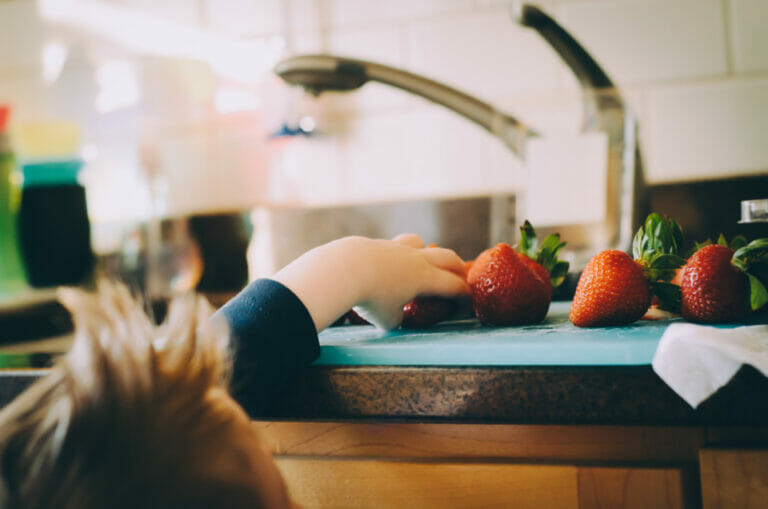![]()
5 key nutrients for an optimal pregnancy
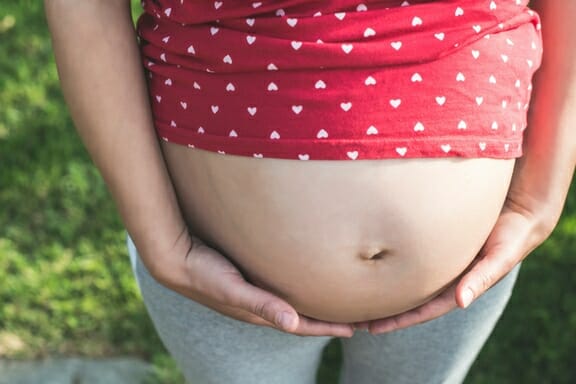
Tess Doig is a Fertility Naturopath and one of our amazing Healthy Mummy wellness experts and in a recent podcast, she discussed the five key nutrients you should make sure you have while pregnant. You can hear more about this on the Healthy Mummy Wellness App.
1. FOLATE
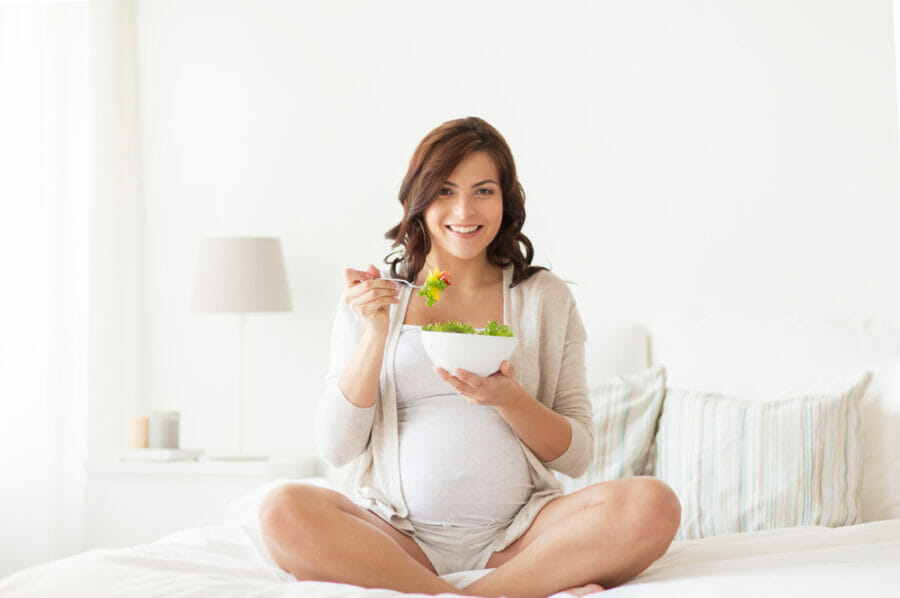
It may come as no surprise that the number 1 is FOLATE.
Most of us will have heard of folate or folic acid. The difference between the two being that folic acid is a synthetic version of the naturally formed folate, which is a nutrient that we find in our food.
Genetically, some people can’t metabolise folic acid as well, so the preference in pregnancy is to use an active folate form. The benefits of using folate are so important to the growing baby, it actually decreases the chance of neural tube defects and spinabifida.
The neural tube is what will become the babies spinal cord, brain and skull. It’s important to note that the neural tubs forms at the 4-6 week mark in pregnancy and that’s often when a woman doesn’t even know she’s pregnant.
So this is a nutrient that is important to focus on should you know when you are planning to conceive. But we can of course get folate through our diet – in particular thought dark leafy vegetables as well as whole grains and avocado. If you struggle with vegetables in the first trimester you might need to get creative in ways to hide them in your food!
For more healthy pregnancy-friendly recipes, check out the Healthy Mummy Wellness App.
2. IODINE
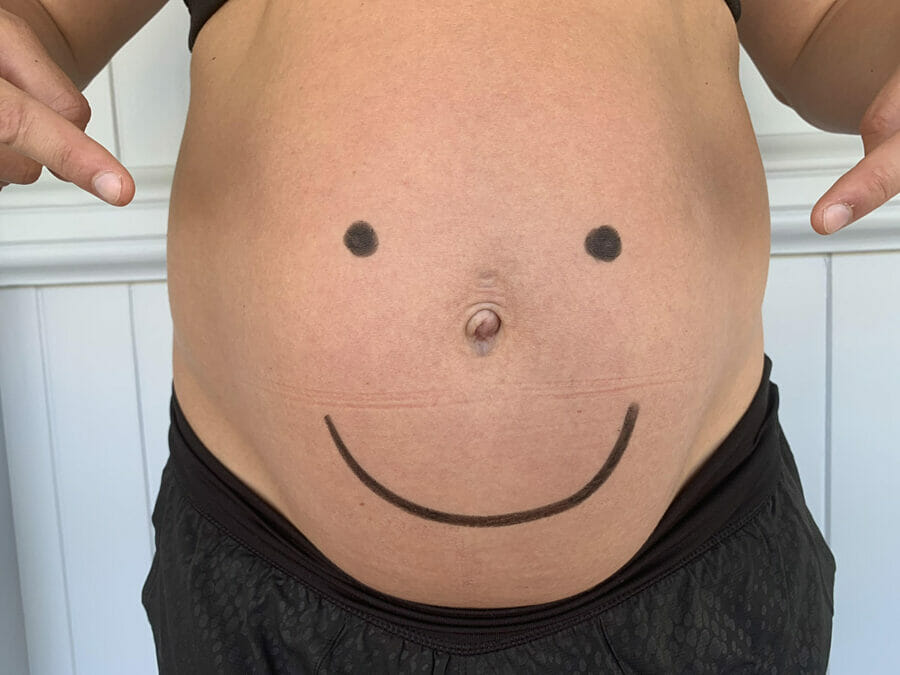
Iodine is growing in popularity as people understand its importance. It is essential for the brain and nervous system of the growing baby.
And even a mild deficiency in the mother has been associated with a lower IQ in the baby, which could equate to life long learning difficulties. It’s also extremely important for our thyroid production, which is responsible for all the energy in the metabolism processes in the body.
If we are deficient in that nutrient the thyroid can’t function as well which also then affects and regulates the energy processes in pregnancy, which could also lead to a potential pregnancy loss.
So this is another one that is good to get onto prior to conceiving. It is a very common deficiency because our main sources of iodine are seafood and seaweed which people don’t necessarily eat all that often!
There was a public health initiative with the push for use of iodine salt but this isn’t necessarily recommended as a good food source because iodised salts are usually highly processed.
Saltwater fish is a much healthier option, or making your own sushi. And it’s still a good idea to watch which fish you are eating in pregnancy. You should avoid the bigger fish with the mercury toxicity risk.
Smaller fish like sardines are a good option – but also an acquired taste! Iodine is a good one to get through a supplement simply because it’s a tricky one to get a good balance of through diet.
3. CHOLINE
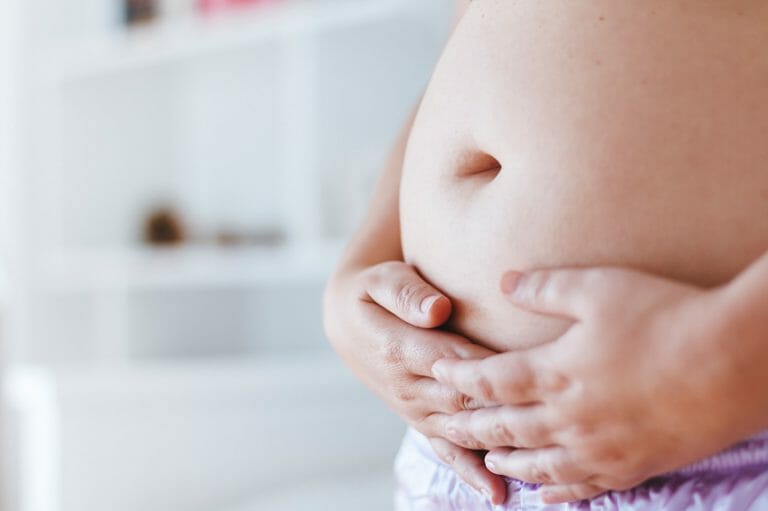
Choline is within the B vitamin group and plays many of the same roles as folate in terms of the babies development and deficiencies can increase the risk of cognitive issues, which can also lead to behavioural issues in children.
And another amazing role that choline carries out is that it aids the transport of nutrients across the placenta to the baby. So really it enhances all the other nutrients that we are consuming in our diet.
The current recommendation intake is around 400mg of choline per day. So if we are looking at food sources one egg yolk contains 140 mg of choline.
This is important to note that it is in the yolk and not the egg white, so it’s important to eat the whole egg. Other sources of choline are meat, legumes, nuts, broccoli and cauliflower and liver is another high source.
So liver is a good one to consume in pregnancy and only organic. And certainly not everyone’s cup of tea! Make sure you check your prenatal supplement for choline as it is often left out in many of the well-known brands.
It’s challenging to maintain through diet alone so always check the back of your supplement bottles! Commonly women would only be reaching 200-300mg through diet alone. Unless you can achieve a 4 egg breakfast daily!
Some new research even suggests intake should be as high as 800 mg a day! Too many eggs to count. We can blame this shift on our diet moving so far from that traditional way of eating, when organ meats were all the rage.
4. IRON
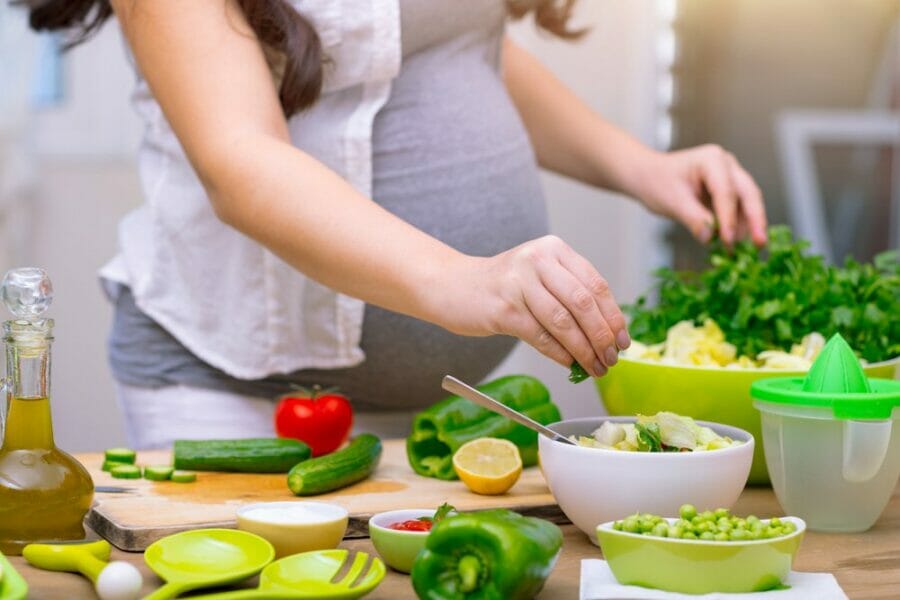
Iron is also the most commonly known nutrient deficiency. Around 30 % of reproductive aged women are iron deficient and around 50-60% of pregnant women are deficient. Which is a lot!
So once again if you are pregnant or wanting to fall pregnant please get your iron levels checked. Ferritin – which is our storage level of iron should sit around 50-80 units prior to conceiving, and this will drop as it moves to the baby.
Our blood volume increases by about 30% when pregnant and because iron is involved in forming the blood our need for iron increases. Our baby will gran all the iron that it needs for the first 6-9 months of life and so from second trimester a lot of our iron intake is being transported over to the baby.
A non pregnant woman would have to consume 14 mg of iron per day, and that will increase to around 27 mg from second trimester onwards in pregnancy. Many will feel the pregnancy fatigue, loss of energy and breathlessness associated with iron deficiency.
It’s great to focus on iron through diet and generally our animal sources of iron are more absorbable than non animal sources, but we can get iron through leafy greens, chickpeas and apricots.
The issue with the vegetarian sources is that its harder for our bodies to absorb the iron from those so you have to consume larger quantities to get the same amount of iron a an animal source.
Focus on red meat and tuna three times a week if you can, and chicken and eggs also contain iron. And then there’s always that great liver option. Time to get into making a more palatable pate!
If you can bring yourself to start navigating eating liver, it’s a great one to pass on to your children as it’s so good for them as well. And not to mention minimising any wastage when we start talking about eating animals. We should eat the whole thing!
Try and get regular iron checks in the last trimester of pregnancy as well as there tends to be big dips at this stage.
VITAMIN D

It’s really important for bone health which means its also important for the babies bone health. And as women more and more women are getting osteoporosis in there 30’s, which is alarming.
This can be because they haven’t had enough of the D vitamins throughout their pregnancies. It is also a really important nutrient for our immune systems and with so many infections and viruses around it helps protect the mother and baby in supporting that system.
It has even been proved to lower the risk of respiratory issues, wheezing, and eczema in the baby when they are born so its an excellent preventative medicine. It can help protect against pregnancy loss in the first and third trimester, which are the risk periods, as well as protection against post natal depression and anxiety. An ideal level could sit between 80-100 nmols per litre and preferably not over 120.
The standard reference in Australia is to be above 50. The difference between the ideal and the minimum is quite large which is important to note. There aren’t a whole range of food options for consuming vitamin D, but strangely enough if you get some mushrooms and put them in the sun that activates the vitamin D that’s stored in the mushrooms and your body will then utiliSe more efficiently.
Vitamin D is a fat soluble vitamin, so it’s the higher fat foods that it is found in – fatty fish, some red meat, milk, dairy and of course mushrooms. But really we should all be getting out in the sunshine and soaking up a healthy amount of vitamin D.
This may go against the fear engrained in us about UV rays but going out for a short while in the morning or afternoon even for a short stroll is always a good thing. We spend so much time indoors now that it is affecting our vitamin D levels and simply getting outdoors a little more frequently is a nice and easy way of getting those levels back up again. In pregnancy its recommended to have 2000 units as a minimum.
So some key things to make note of are to test before you conceive if you can. We all know accidents can happen but if you are planning then try and have it in the forefront of your mind. This way you can work on building up those nutrient levels prior. Just eating a really healthy balanced diet will cover a lot of the ground for you.
Get access to Anxiety & Stress Wellness Programs in the Wellness App
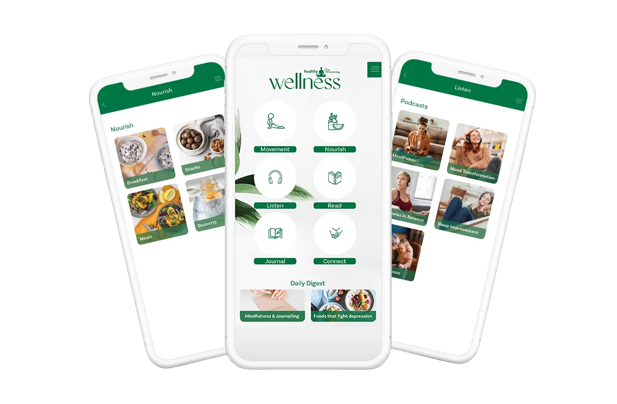
The Healthy Mummy Wellness app is built to support mums’ mental, physical and social wellbeing. We have expert advice to help mums makeover their minds, transform their mood, manage their hormones, sleep better and engage with their family. You can listen to podcasts, read blogs, work out with our trainers and find healthy, family-friendly recipes from the palm of your hand.

